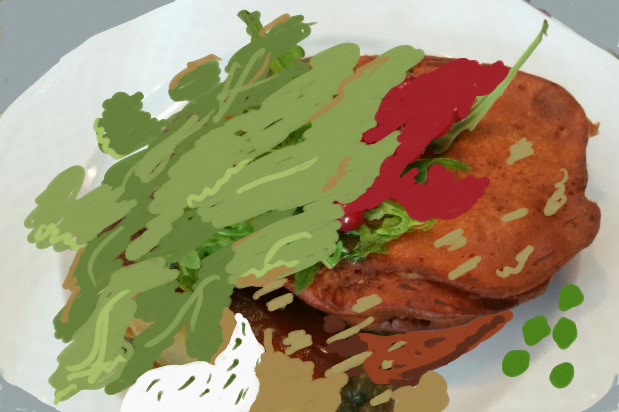Real estate mogul Frank Salt, whose family-owned business is one of the largest in this sector in Malta, is known for writing somewhat puzzling columns for the Times of Malta, the country’s largest, conservative-leaning newspaper. I won’t help the editors, who eagerly publish all this, in their clickbaiting efforts, but you can find out about Salt’s interpretation of things by …
Why do restaurants shoot themselves in the foot?
Food is increasingly glorified – as a travel, community, bonding and self-development experience. Many people of my generation and social class spend a huge portion of their monthly budgets on eating out rather than saving for purchases. Unsurprisingly, catering is a robust business even in countries that are still grappling with the impact of the economic crisis. Restaurants compete for …
Charity or rights? New survey on helping poor countries
I’ve been unpacking the results of the recently released Eurobarometer survey with a focus on Malta lately. It is full of interesting trends, which are likely to translate into policy decisions about development aid. These are the most interesting findings: Respondents who experience the most difficulty in paying bills are generally less positive about development aid issues and the least …
Building Friendships event in Msida
The first day of September was rich in intercultural events: Appogg (the governmental youth agency) and UNHCR Malta brought several communities together to share food and traditional music in Msida, targeting mostly families in their Building Friendships event, and Spark15, a young migrants’ NGO, publicized a contemporary music and games event in Valletta. It was a tough choice, but Msida …
The dangers of NOT being a happy camper while living abroad
One day I was browsing the Expats Malta Facebook group, when a discussion about pros and cons of living in Malta caught my eye. The group is too active for me to find it again, but basically (<- that′s a strongly beloved word among the locals) it was a flood of reactions to a British person criticizing healthcare, streets, and …
Hot & cold, or how a New Yorker article explained Malta to me
When I came across an article about a glossary of positive emotions in the New Yorker, the idea was far from new to me. But this important quote is worth rethinking: Lomas has noted several interesting patterns. A handful of Northern European languages, for instance, have terms that describe a sort of existential coziness. The words—koselig (Norwegian), mysa (Swedish), hygge …
Maltese festival, Armenian violinist and habitus questions
Social theorist Pierre Bourdieu famously defined the sum of acquired tastes and various dispositions as habitus – not exactly an over-structure where individuals merely participate, but neither an individual portfolio of competences, crafted upon a free choice among components. Although this theory is about everything and anything, I find it very useful both academically and in my own observations about …
False news, world literature maps, and why not anything goes for small countries
Culture reporting is every bit as serious as war reporting. – My friend Alexandra Belopolsky, a culture reporter Several of my Facebook friends shared this map, which claims to represent each country’s favorite book. How does one measure that, the creators did not bother to explain too much. A reddit list became the primary venue to crowdsource this information, but …
Open day at Kaunas mosque
The community of Kaunas mosque provided an opportunity for anyone interested to go inside the unique Tatar mosque of Kaunas, to see a Muslim prayer, look around and enjoy food from various countries and cultures. The mosque has become an important contact point for old and new Muslim communities, the latter consisting of foreign students, workers, spouses of Lithuanians, expats …
Cyprus impressions: ancient ruins at your fingertips
As my travel companion Ugnė wrote (in Lithuanian), Cyprus is rich in well-preserved and accessible ruins, particularly in Famagusta, which she calls the capital of antique ruins. As I wrote in my , people interact with objects in a very direct and laid-back way. Sterility of museums seems to be alien to the local culture. There are museums, of course, …


